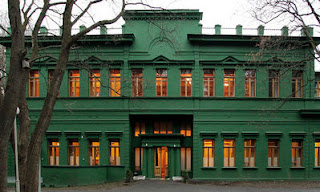The Technology of Efficiency of Science, Innovation, Management

The Principles of Scientific Methodology
Any rational intellectual activity requires adherence to the classical principles of scientific methodology:– Knowledge should be presented in the form of separate descriptions of the properties of the investigated and / or designed objects and the processes of their changes;
– Intellectual texts cannot contain incorrect terms, logical contradictions, and inconsistencies with facts;
– Experts and managers should evaluate knowledge only on the basis of correct discussions of controversial properties of objects between their proponents and opponents.
Natural and technical sciences are based on these principles.
Compliance with these principles significantly increases the required tension of the intellect and increases the labor intensity of intellectual activity. People avoid stress. Therefore, they, to one degree or another, violate these principles.
The application of these principles greatly facilitates the identification of errors in scientific papers. In most cases, authors prefer to prevent the identification of errors in their work. Therefore, they sabotage the observance of scientific principles.
In physics and technology, scientists intuitively follow these principles to some extent.
First, because in these sciences, the objects of research are relatively simple.
Secondly, when scientific principles are violated, objects of experiments or projects do not function, they are destroyed or even explode.
The more complex the objects of research and projects are, the more complex the sciences studying them are, and therefore the more the principles of methodology are violated in them.
Chemists violate scientific principles more than physicists. Biologists and medical professionals are breaking even more. Psychologists are even more.
Workers in the humanities and social pseudo-sciences generally openly ignore and even aggressively deny these principles, justifying this by the specifics of these supposedly “sciences”.
Violations of the principles of scientific methodology impair the culture and effectiveness of the scientific activity.
The effectiveness of scientific interaction – communication, criticism, discussion, assessment, cooperation – especially decreases.
The effectiveness of the application of scientific innovations in the economy is deteriorating even more. Therefore, erroneous, unprofitable projects are financed. Profitable projects are rejected.
Full adherence to the principles of scientific methodology will increase efficiency:
physics and engineering – 1.5-2 times, chemistry – 2-3 times, biology and medicine – 5-7 times, psychology – dozens of times, sociology and political science – hundreds and thousands of times.
Thus, the costs, timing, and likelihood of erroneous results of scientific activity can be reduced many times.
The Foundations of the Scientific Methodology
The main category of the theory of knowledge is «Property of an object».Description of a property of an object is a thought and an element (portion, discrete, quantum) of knowledge.
Knowledge is a structured set of descriptions of the properties of the objects under study.
Therefore, knowledge is discrete and structural.
The goal of cognition (scientific activity) is the creation of descriptions of properties of objects.
The discrete format is a necessary property of scientific knowledge and a sign of its scientific nature.
Scientific knowledge, scientific thinking, and scientific communication must be discrete and must operate with separate descriptions of the properties of objects.
The more discrete and structured knowledge is, the higher its quality is.
Natural science knowledge is discrete and structured to some extent.
Humanities and social sciences, as a rule, are presented in the format of a text stream, in which the identification of errors is significantly difficult. They are discrete and structured to a minimum. Moreover, it is so minimal that this knowledge cannot be considered scientific.
Errors of scientific knowledge are incorrect terms, logical contradictions, inconsistencies with facts.
Knowledge containing errors is false.
The main function of scientific communication is to identify errors in the descriptions of the properties of objects.
Therefore, the subjects of scientific discussions are separate, specific descriptions of the properties of objects and possible errors in them.
Analysis and discussion of texts in which individual descriptions of properties are not clearly identified, are significantly difficult and ineffective, up to their sterility or even impossibility.
In scientific texts, each description of a property should be clearly separated from descriptions of other properties, usually in the form of a paragraph.
The description of one property should consist, as a rule, of 1-3 sentences.
It is preferable to separate paragraphs, for example, with blank lines and assign them unique names for convenience and accuracy of referencing property descriptions.
The Application of the Scientific Methodology
1Establish a standard for the discrete format of documents and scientific papers published in state scientific organizations, and prohibit the publication of documents and scientific papers in the streaming format in them.
2
Replace peer review of scientific papers with their discussion according to the principles of scientific methodology.
3
Organize training in the principles of scientific methodology in secondary and higher educational institutions, as well as trainings for officials and heads of state enterprises and organizations on the application of the principles of scientific methodology.
4
Establish a legislative standard for the discrete format of documents published in state, regional, and municipal bodies, as well as in state enterprises, and prohibit the publication of documents in the streaming format in them.
5
Recommend state, regional, and municipal authorities, as well as state-owned enterprises, to evaluate their projects and make decisions only based on the materials of their expert discussions in accordance with the principles of scientific methodology.
First of all, it is advisable to apply scientific principles in biological and medical institutes. This will increase their effectiveness by a factor of five or more. Most of their employees are able to think in organized and logical manner and therefore can abide by these principles.
The application of scientific principles in humanitarian and social science institutions could increase their effectiveness tens and even thousands of times. However, the consciousness of their workers is corrupted by traditional rhetoric and demagoguery. Therefore, they are unable to think in an organized way and apply scientific methodology.
Therefore, it is necessary to raise a new generation of scientists for these sciences, who will be able to think scientifically.
They will form qualitatively new humanities and social sciences, which will be freed from rhetoric and demagoguery and will create knowledge that corresponds to the principles of science.
To prepare a wide application of the scientific methodology, it is advisable to create a targeted think tank.
E. Gershman
___


Comments
Post a Comment